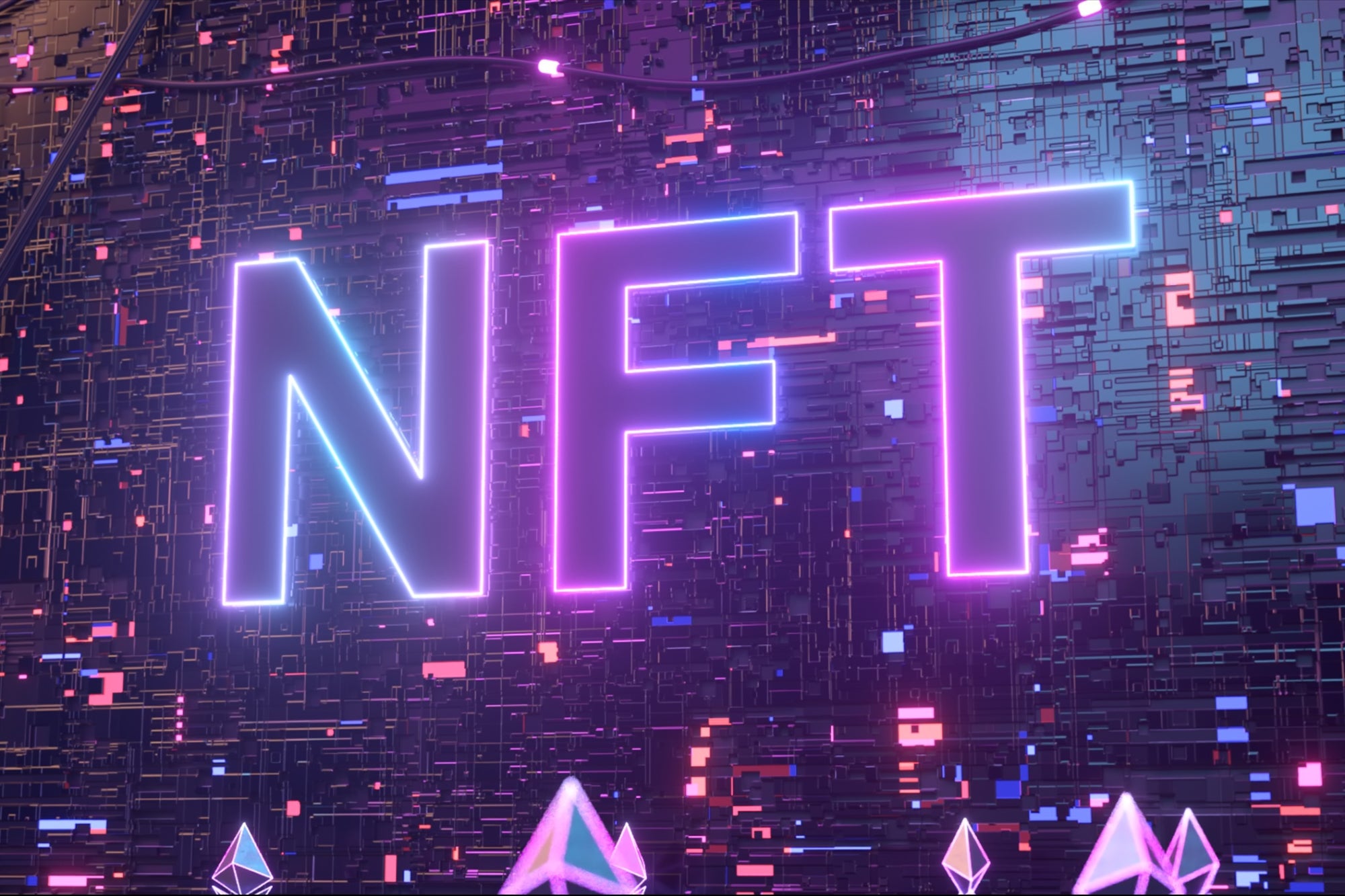Signing out of account, Standby…
NFTs have the potential to be infinitely useful in many industries by increasing security and processing costs for transactions and providing a new platform for the gig economy to work through.
The recent influx of news surrounding the trend of non-fungible tokens (NFTs) that have been fetching staggering amounts online has a universal reach. Although they have recently become a new fad for celebrities to spend millions on, NFTs have a surprising amount of utility that comes along with their collectability. As we continue to explore this new, completely-digital asset class, we should pay attention to the practical use they can provide: a highly secured, comprehensive approach to online business transactions.
The utility for NFTs lies in their use of blockchain technology; a decentralized digital ledger that is almost impossible to alter or hack. Beyond proving ownership of a unique digital asset, this technology has almost limitless applications beyond simple pixelated art.
Imagine a world where the deed to your house exists as an NFT. Instead of having to be re-generated every time the house is sold, the deed would log all changes automatically, making closing a breeze. Not only that, but it would also be much more secure — nobody would be able to forge house ownership, because they wouldn’t be able to alter the NFT.
This wouldn’t just apply to houses, either. It would be useful in any environment where ownership needs to be tracked and proven. Instead of having to spend time hunting down the paperwork to prove you bought and owned something, the NFT would provide a perfect record of the entire ownership history of an item.
You could see applications for gig workers and bidding on jobs. Additionally, having the time-keeping and pricing mechanism built into their NFTs creates a digital work order that can be changed in real-time as the job progresses. Prospective college students could mint an NFT representing their application profile, with colleges bidding on them by offering admission and scholarships. But it’s not just about utility; NFTs bring an improvement in security, too.
Related: The NFT Gold Rush: Here’s Why Everyone Is Talking About Non-Fungible Tokens
Paper-based transactions are inefficient, require more human employees and have a tendency to be lost. However, they have one advantage over the cloud-based documentation in use today: It’s often easier to prove a paper document’s authenticity. Documents stored online can be hacked, duplicated, or altered, which costs companies millions of dollars every year.
NFTs of the future could solve both of these problems. They bring a new layer of security to digital transactions while simultaneously improving efficiency. Anyone involved in a transaction can see the NFT’s journey from creation to the final version in real-time, as well as know exactly who else was involved in that journey. It creates a virtually unhackable system that’s encrypted, able to be easily distributed and can’t be altered. Identity theft could become a thing of the past. The asset that an NFT represents is tracked and verified to exist, which heightens confidence by all parties to a transaction that it’s accurate and above-board.
Related: Blockchain’s Impact When it Comes to Data Security
NFTs have the potential to drastically reduce transaction processing costs for both the buyer and seller of a good or service. The fees involved in these transactions, which are often a function of the analog systems that are used to process them, could be dramatically reduced. This could also create the ability to increase the volume of transactions. NFTs are easy to mint, and one person can mint several in an hour — something they can’t do with physical documents or even many digital documents.
It’s hard to conceptualize all the benefits we could see from the widespread adoption of NFTs. The blockchain technology that underlies NFTs has already changed the world, and it will continue to as businesses work through issues like interoperability and widespread adoption by average consumers.
Instead of remaining a high-priced novelty for the people who already have everything else, the NFTs of the future will be judged by how efficient and secure they make everyday business. There aren’t any losers in that world, apart from perhaps the less-than-savory characters taking advantage of today’s systems.
Related: NFTs Will Soon Be Unavoidable. That’s a Good Thing.
Zooey Deschanel Embraces the Word ‘Quirky’ and Thinks Businesses Should Too
A Simple (But Not Easy) Guide to Achieving Almost Any Dream
Making Time to Be ‘Useless’ Is a Vital Part of Creating Anything Valuable
A Billionaire Who Operates More Than 2,400 Franchises Knows These Types of Franchisees Make the Most Money
How Relentless Optimism Fuels Success for Hilary Schneider, CEO of Shutterfly
The Paradox of Celebrity Tequila
Social Media Was Draining Me, So I Gave It Up. My Business Has Never Been Stronger.
Emily Rella
Madeline Garfinkle
John Rampton
Subscribe to our Newsletter
The latest news, articles, and resources sent to your inbox.
I understand that the data I am submitting will be used to provide me with the above-described products and/or services and communications in connection therewith.
Read our privacy policy for more information.
Copyright © 2022 Entrepreneur Media, Inc. All rights reserved.
Entrepreneur® and its related marks are registered trademarks of Entrepreneur Media Inc.
Successfully copied link

